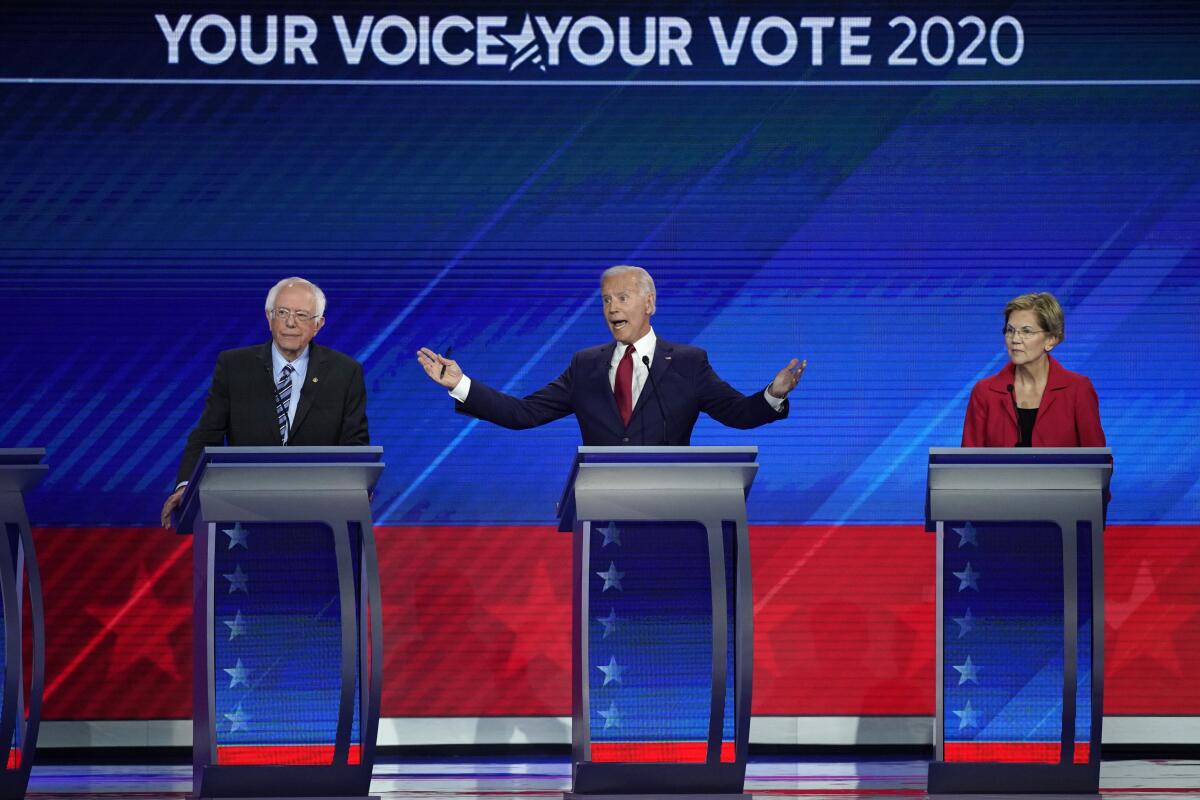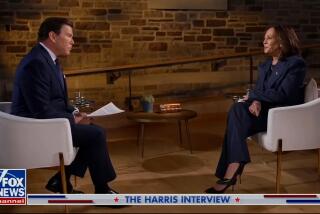Third Democratic debate scores 14 million viewers on ABC and Univision

- Share via
The third face-off of the 2020 Democratic presidential contenders pulled in 14 million viewers on ABC and Univision on Thursday, making it the fourth most watched Democratic primary debate ever.
Moderated by ABC News anchors George Stephanopoulos and David Muir, ABC News correspondent Linsey Davis and Univision anchor Jorge Ramos, the three-hour debate had an average audience of 12.9 million viewers on ABC and 1.1 milllion on Univision, according to Nielsen data.
The collective number puts it behind the 18.1 million viewer record set by the second round of the first 2020 primary debate on NBC, Telemundo and MSNBC on June 27, the 15.5 million who watched the first Democratic debate of the 2016 presidential cycle on CNN in Oct. 2015, and the 15.3 million for round one of NBC’s simulcast on June 26.
The event held at Texas Southern University in Houston was highly anticipated as it was the first time front-runner former Vice President Joe Biden and his closest rivals in the polls, Sen. Elizabeth Warren of Massachusetts and Sen. Bernie Sanders of Vermont, shared the same debate stage.
Only 10 of the 20-plus candidates for the Democratic nomination qualified for the debate stage based on polling and fundraising criteria. They included Sen. Amy Klobuchar of Minnesota, former Rep. Beto O’Rourke of Texas, tech entrepreneur Andrew Yang, South Bend, Ind., Mayor Pete Buttigieg, Sen. Cory Booker of New Jersey and former Department of Housing and Urban Development Secretary Julián Castro.
The major fireworks of Thursday matchup were generated by Castro, who used a lack of clarity in one of Biden’s answers about his healthcare plan to suggest the former vice president did not have the mental acuity to be president.
The previous two primary debates of the 2020 campaign cycle were extended over two nights to accommodate more candidates. The unwieldy format could also be used in the next Democratic primary debate in Ohio on Oct. 15 and possibly Oct. 16, which will air on CNN. The New York Times is co-hosting the event.
The lack of appeal of the two-night setup — which leads to major contenders appearing on different nights — is reflected in the fact that NBC and CBS were not interested in producing the event, according to people familiar with the discussions who were not authorized to comment. The networks have expressed a preference for carrying debates with fewer candidates.
More to Read
Inside the business of entertainment
The Wide Shot brings you news, analysis and insights on everything from streaming wars to production — and what it all means for the future.
You may occasionally receive promotional content from the Los Angeles Times.











